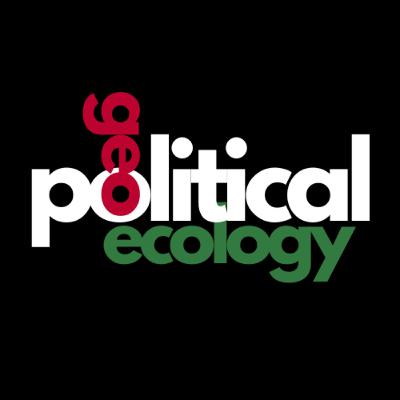Anti-Establishment Positions in Lebanon and Beyond w/ Karim Safieddine
Description
Karim Safieddine is a PhD student interested in understanding the ways in which social movements, for what they represent in terms of various aspects of intellectual and organizational leadership, challenge or reproduce prevailing power relations and ideological norms between late 20th and 21st century Lebanon. In this context, his research focuses on the historical and contemporary development of the "Lebanese Left", particularly in relation to other more dominant local political forces. While he heavily relies on Gramscian optics in his studies, he is open to various models and methods. He was the President of the Secular Club at the American University of Beirut, which is where I know him from, as I participated briefly in the Club’s political landscape during my undergrad years.
In this episode, we discuss a multitude of topics particular to Lebanon, Palestine, and Syria–from the various forces of power, oppression, hope, and resistance to the various moments and figures in history that shaped and reshaped the realities of millions of people, of institutions, of knowledge production, and so on.
The conversation was always rooted in the multifaceted anti-establishment movements in Lebanon, which inevitably requires us to constantly contextualize, analyze, and comprehend what these movements were up against, the tools they had (and didn’t have) at their disposal, moments in which they were stubborn and moments in which they did the self-reflection necessary for more meaningful ways, and what it meant to be situated in the geopolitical context that was and is also constantly changing.
We break it down into two sections: Lebanon before 1990 and Lebanon after 1990, leading to the present conjuncture, where we end the episode on some reflections by Karim on what challenges and opportunities lie ahead, in such a pivotal moment.
For your reference, Isa and I compiled a small timeline of post-1990 Lebanon that could help you better understand the conversation (see below). Also, Karim mentions a lot of names of people as well as movements that I highly recommend looking up as you listen. It could be arduous and disruptive to pause and reflect at times, but doing so gives the experience - as well as Karim’s voluntary work - the reflective value it deserves.
1990: Ta’if and beginning of Harirism / post-war neo-liberal order
2000: End of Israeli Occupation of South Lebanon
2005: Cedar Revolution + Assassination of Hariri + End of Assadist Occupation of Lebanon.
2006: July War (w/ Israel)
2008: “May 7” / Hezbollah “invades” Beirut
2011: Arab Spring (Focus: Syrian Revolution and War)
2015: “You Stink” Movement
2019: Thawra / October 17 Revolution
2020: Beirut Blast
2019-Present: Economic collapse
2023 Oct. 7–Present: Zionist onslaught + assassination of Hassan Nasrallah + End of Assad regime in Syria.
Finally, here are some pieces written by Karim:
13 Years After the Arab Uprisings: The Strategic Choices of Lebanon's Anti-establishment Movement
Lebanon's opposition today: A story of perpetual crises
Hezbollah couldn't save Gaza or Lebanon: Only state-building can ensure our future
Karim’s IG account: @safieddinekarim
PS: Special thanks to Chafic Mouharam for conversing with me over the past years about Lebanon. We were together in Toronto when the horrible Blast in Beirut took place and we processed, mourned, and reflected together. He helped inform some of my questions in this episode. Thank you, Chafic.
Chapters:
(00:00 ) Introduction & Personal Experiences
(20:16 ) Lebanon Pre-1990
(41:35 ) Lebanon Post-1990
(1:01:45 ) Anti-establishment and 2019 Thawra
(1:22:00 ) Looking ahead





